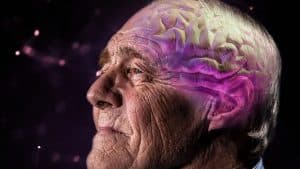Personality disorders occupy a particularly tricky corner of the already challenging world of mental illness. They’re hard to diagnose, even harder to treat, and stereotypes mean you have to wade through extensive misinformation and bigotry. Early identification remains one of the best hopes of effective treatment, and because signs often first appear in adolescence, you need to understand how they affect teenagers (https://longevity.technology/lifestyle/personality-disorder-in-teens-early-detection-and-intervention/).
A personality disorder is generally defined by “maladaptive patterns of behavior.” Basically, people don’t know how to react in a healthy way to events or their own feelings. They have trouble following the normal rules that govern society and human interaction, and they may behave in ways that are harmful to themselves or others. Depending on the disorder, this may include poor impulse control, aggression, paranoia, emotional volatility, emotional coldness or apathy, lack of empathy, extreme sensitivity, egocentrism, manipulativeness, dishonesty, unhealthy attachments or various other symptoms.
Like many mental illnesses, we don’t know the exact mechanisms that cause personality disorders, but it seems to be a mix of genetic and environmental factors. You may be genetically predisposed and more likely to develop one if a parent also has one, but it often takes life events to trigger it. Inconsistent parenting and childhood experiences of abuse or neglect are common experiences for those with personality disorders.
People may not be diagnosed with personality disorders until they are older, but behavioral problems often start in youth. Mood swings, a distorted sense of self, risk-taking behavior, explosive anger, trouble maintaining relationships, fear of abandonment and feelings of emptiness can be early warning signs.
The type of personality disorder and severity of symptoms dictates treatment. For example, dialectical behavior therapy (DBT) was specifically developed for borderline personality disorder. Cognitive behavioral therapy may help some cases, but antisocial personality disorder is notoriously resistant to traditional treatments. Medication might not be able to cure a personality disorder, but it may treat symptoms or comorbidities, such as depression. In many cases, for teenage patients, parents should be involved in family counseling.
Adults who are responsible for a teenager displaying early signs of a personality disorder need to listen, educate themselves and act as advocates for their child. You need to be able to provide encouragement and support but also offer structure and establish boundaries. Most importantly, you should be willing to seek professional help.




